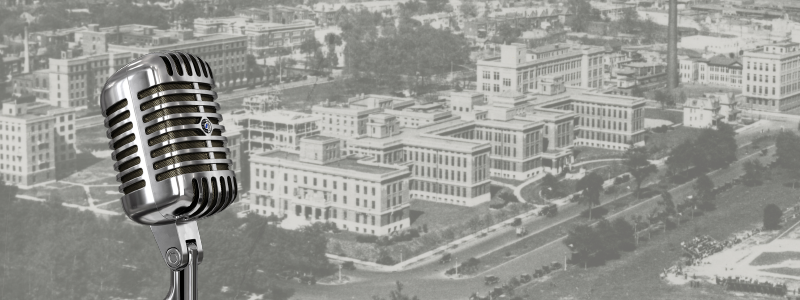
Washington University School of Medicine Oral Histories

Howard Phillip Venable Oral History
Interviewer
Edwin W. McCleskey Ph.D. and William M. Geideman
Loading...
Summary
Howard Phillip Veneable was interviewed by Edwin W. McCleskey and William M. Geideman on July 14, 1990, for approximately 1 hour and 16 minutes. Venable discusses his experience at Homer G. Phillips Hospital, the desegregation of hospitals in St. Louis, his work with students, and his experience with housing discrimination.
Scope and Content
Howard Phillip Venable discusses his experience at Homer G. Phillips Hospital, the desegregation of hospitals in St. Louis, his work with students, and his experience with housing discrimination.
Venable describes how he came to work at Homer G. Phillips Hospital and the segregation of medical care and medical education in St. Louis in the 1930s and 1940s. He explains the connections between Homer Phillips, Washington University, and St. Louis University, and discusses the doctors from Washington University and Barnes Hospital who came to Homer Phillips. Venable also relates his work identifying ophthalmological differences between Black and white patients.
He addresses his role in desegregating an ophthalmology society in St. Louis, the housing discrimination he faced in Creve Coeur and his case against the city, and the part he played in the desegregation of St. Louis hospitals. He relates his experience as a Black doctor before Barnes integrated, and the white patients he saw at his private practice. He also discusses the closure of Homer Phillips and the differences between Homer Phillips and Max Sarkloff Hospital (City Hospital No. 1).
Venable discusses the establishment of the Katie and Howard Phillip Venable Student Research Fund in Ophthalmology and his experience as an associate examiner for the American Board of Ophthalmology. He also explains what he thinks should be done to get more Black students into medical school.
Biographical Information: Interviewee
Howard Phillip Venable (1913-1998) was born in Windsor, Ontario, and earned his undergraduate and medical degrees from Wayne State University in Detroit. Venable completed his internship and residency at Homer G. Phillips Hospital in 1942, and the next year became the first African American ophthalmologist to be awarded a Master of Science degree in ophthalmology from New York University. From 1943 until 1979, Venable served as chair of the department of ophthalmology at Homer G. Phillips Hospital. In 1979 Homer G. Phillips Hospital closed due to financial and political pressures.
Venable was also the first black physician to join the clinical faculty of St. Louis University School of Medicine. He was appointed an instructor in ophthalmology in 1947 and was senior instructor from 1954-1959.
In 1959, he was appointed instructor in ophthalmology at Washington University School of medicine and was later promoted to assistant professor of clinical ophthalmology. Venable was the first African American to serve as an associate examiner for the American Board of Ophthalmology, serving from 1969 to 1981.
Biographical Information: Interviewer
Edwin W. McCleskey, Ph.D. was an assistant professor in the Department of Cell Biology and Physiology at Washington University School of Medicine from 1986 to 1993. His research addressed the biophysical properties of calcium-selective ion channels and the discovery of ion channels that trigger different types of pain. He also taught physiology and neuroscience.
William M. Geideman is an orthopedic surgeon who graduated from Washington University School of Medicine in 1993. He completed his internship and orthopedic residency training at Barnes-Jewish Hospital.
Interview Date
1990-07-14
Collection Identifier
OH111 (PC054-S13)
Length
Approximately 1 hour and 16 minutes.
Restrictions
Users wishing to publish (in whole, or in part) content taken from the audio or transcript of this oral history interview must request, sign, and return a Statement of Use form to the Becker Archives. For detailed information regarding publication and use of this oral history, contact the Becker Archives (arb@wusm.wustl.edu).
Recommended Citation
Howard Phillip Venable Oral History, OH111 (PC054-S13) , Bernard Becker Medical Library Archives, Washington University in St. Louis.
Disclaimer
The Becker Archives provides access to this oral history interview as a record of the past. This interview reflects the attitudes, perspectives, and beliefs of the interview participants, which may reflect outdated, biased, and offensive views and opinions. The Becker Archives does not endorse the views expressed in this interview, which may contain materials offensive to some users.




Notes
Some of Venable’s statements contain ambiguities that the interviewers were unable to verify.